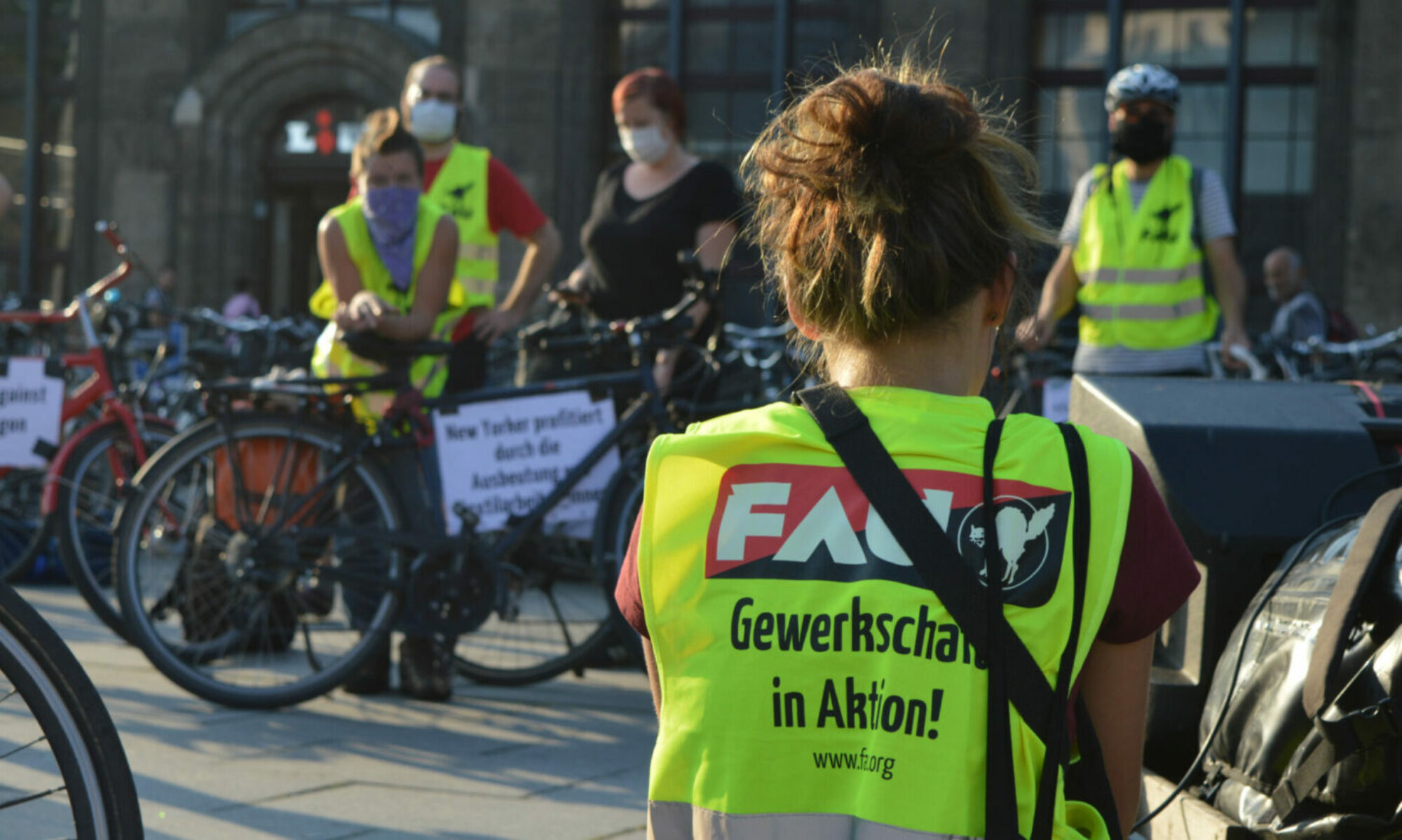We are currently in a labor dispute with the boss of the TagZwei bakery on Kamenzer Straße. The company sells baked goods from other bakeries from the previous day to counteract the waste of food. Actually a nice concept. Unfortunately, the boss’s views on labor law are also from yesterday. The FAU Dresden demands the payment of unpaid wages, the payment of vacation pay and the withdrawal of an illegal dismissal for an employee. We advise customers to consider whether they really want to visit the bakery during the labor dispute and ask for active participation in the protest rally on July 24th at 3 pm on Kamenzer Straße 42b (in front of the store). We are also pleased about the solidary accompaniment of the conciliation hearing on July 31 at 10:45 a.m. at the labor court in Dresden, Hans-Oster-Straße 4.
The Conflict
Unfortunately, this conflict is not about major improvements in the world of work; on the contrary, it is about compliance with fundamental labor law standards: Working hours must be paid, we are entitled to vacation pay even in mini-jobs, and there are clear criteria for termination without notice. The owner J. Zscheile does not want to know about all these standards. And that despite the fact that he claims to be a union representative and works council member at Deutsche Post. Our member was probably dismissed due to interpersonal conflicts. Although small businesses have a very company-friendly dismissal law, the dismissal for various reasons is not valid. During a review of the employment relationship, it turned out that Mr. Zscheile also withheld a large number of payments. Despite his alleged position as a works council member, he repeatedly denied basic labor law facts and spread false information to his own staff.
At the beginning of July we had a meeting with Mr. Zscheile after he had angrily called us about our labor law posters. In this conversation, which was actually intended to find a joint solution to the problem, Mr. Zscheile showed no willingness to negotiate whatsoever with regard to our demands. Instead, he constantly interrupted the union representatives, insulted the affected member and denied the labor law.
He claimed that he would have to close down the company if we were able to enforce our demands and tried to turn the colleagues of our member against us. An examination of the economic indicators of the company (as far as possible) did not reveal any indication of such a massive imbalance of the company – we are talking about claims amounting to a few daily sales. Should the company actually not be able to raise this amount, this would clearly indicate a delay in filing for bankruptcy. Much more likely, however, it would be a bluff and an attempt at emotional blackmail. The fact that he did not say a word about the repeated offer of payment by installments and repeated the fairy tale of the potential closure of the company again and again also speaks for this. We ask Mr. Zscheile to disclose his accounts and explain the economic situation of the company. We offer all colleagues to support them in asserting pending claims and finding a new job, should the business actually be wound up.
Dropping the demands is out of the question for us, because any failure to comply with the legal minimum regulations puts economic pressure on all other comparable companies that are striving for better working conditions. For projects that focus on the social and not on the economic aspect, other forms of organization are suitable, e.g. associations and collectives, in which all parties involved have an equal say. However, those who choose hierarchical, commercial forms of organization must also fulfill their corporate duties. In such cases, it is better in the long term to take dumping companies out of the market through trade unions than to tolerate a deterioration of the industry conditions as a whole.
Our approach
With a rally and public relations we want to show Mr. Zscheile the seriousness of our request and hope that he comes to his senses. If he continues to insist on his position that the meager minimum rights for employees in small businesses and mini-jobs are not valid for him, we will take legal action and – at much higher costs for him – we will certainly be proved right. We are happy about offers of support from solidarity colleagues, but the most important thing remains: organize yourself early on, pay into labor dispute funds, continue your education and create a network across the companies. Then, at some point, we will perhaps talk less about the working conditions of the day before yesterday and more about the solidary, self-governing world of tomorrow.

